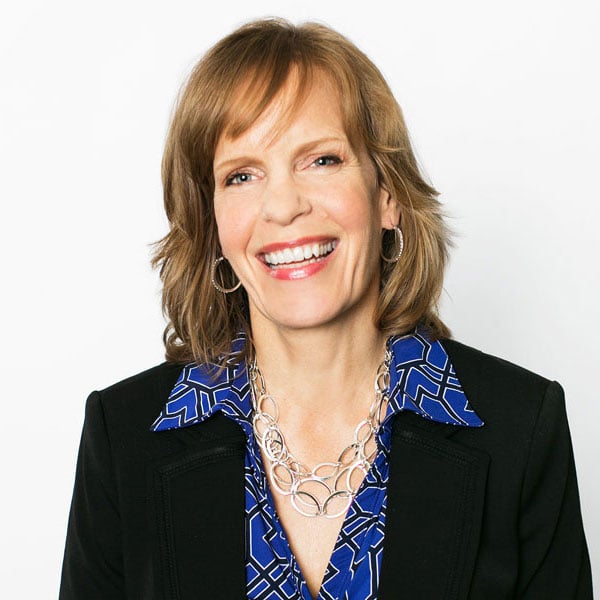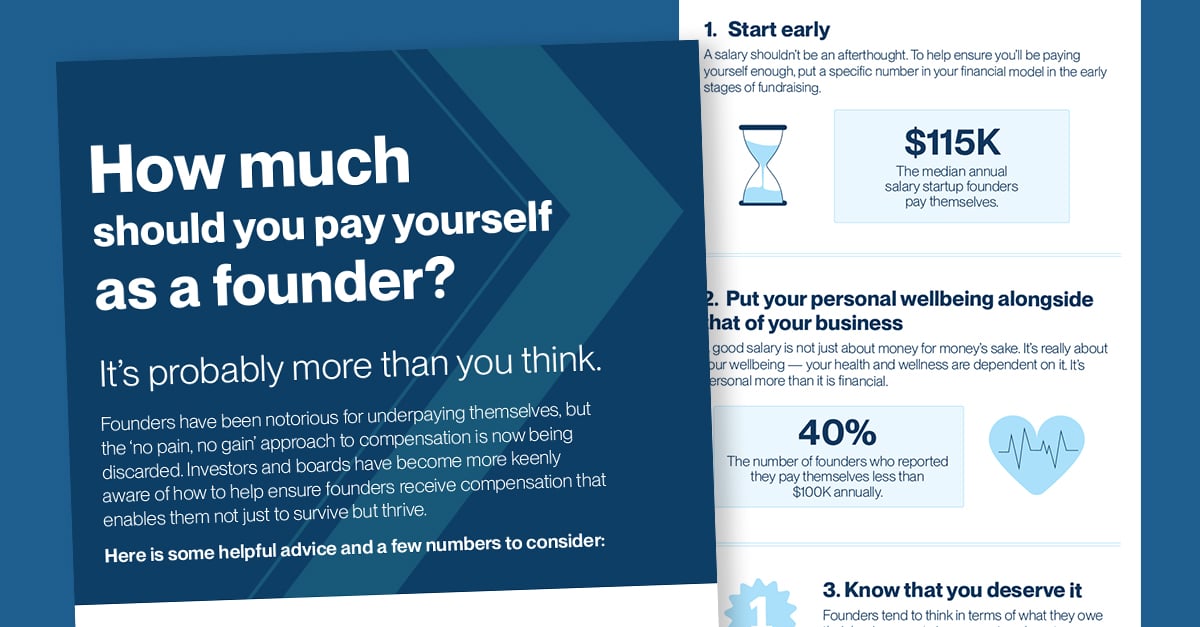During our second episode, hear how successful founders pursue personal liquidity during company growth stages to help reduce risk and fund their family’s day-to-day expenses.
Podcast transcript
Ann: Welcome to the second episode of "Business Meets Personal Wealth." Hi, I'm Ann Lucchesi with SVB Private, and I've been advising founders for over 20 years on how to think about their personal wealth journeys. Every episode, I dig into some of the unique challenges that impact our clients across the innovation economy and discuss ways our advisors help plan for the unknown and build personal wealth strategies. Today, I'm joined by my colleague Dave Buxton, a Private Wealth Advisor at SVB Private, to explore how founders should think about liquidity while they're raising financial rounds. Dave, can you share what you do in one sentence?
Dave: Right. I work with founders and investors in the innovation economy, providing holistic planning advice in preparation for liquidity events.
Ann: All right, well, let's dig in on founder liquidity. I often find founders who have been successful in kind of growing their company, raising that big first institutional round, begin to become curious about their own path to liquidity. The average tech company today is about 14 years old by the time it exits. So it's a really long pathway. Dave, you talk to hundreds of founders, what advice do you give them for that journey?
Dave: So, a couple of points there, normally, I advise founders to take 5% to 15% off the table via a secondary, if possible, if available. Reason being is first to eliminate concentration risk. I've seen many fortunes won and lost because our founders and clients become too emotionally attached to their company. And then the other thing would be so that they have enough liquidity to pay the bills, if you will, and get through the day-to-day. We really want them to focus on growing and bringing their company to the next level and not having to worry about personal finances.
The other thing I do is I ask, when they approach us for liquidity is, "What are you solving for?” So, is it a home purchase? Is it option exercise, other investment opportunities, etc.? Reason being is that then we can really work with them to try to come up with a solution. For an example, I recently had a founder that we were working with who really needed to buy a new home for his family and he didn't have a lot of liquidity. So, what he was able to do was work with the company to secure a loan that he could use for the down payment, and then we were able to complement that with our mortgage from SVB Private.
Ann: Yeah, and do you often get asked about how the bank leans in to loan on private shares?
Dave: We do. We get approached for folks seeking to borrow against their private shares. And, you know, the private stock loans, a lot of people say they do them, but they are actually very hard to implement or execute, particularly when there's not a liquidity event in the near-term horizon. Oftentimes, we see institutions that claim they'll do private stock loans, but really what they're offering are prepaid forward contracts. Basically, a situation where they're looking for repayment at a future date, in shares at a fixed price. And it's usually very expensive and not really that advantageous for the founder.
Ann: Yeah. Yeah, I've seen the same thing out there in market. The other thing I tell founders often is that it's just so critical to understand tax consequences of any of these kinds of things that they're doing, particularly if they're making a sale. You know, oftentimes, when they're raising a round of capital, it's a good time to think about taking some money off the table and they can structure it a couple of different ways.
You can either raise enough equity or raise enough capital where you're repurchasing and/or you can sell them directly to a third party. Both have significantly different tax consequences. And it's really important to figure out how they decide how much to sell. You gotta know what those taxes are because you don't wanna be short money after you kind of put the transaction in place.
I also think that while company loans can be a fantastic way for the founders to relieve a little financial pressure, there are also some things around the loans that it's really important for them to understand, like, where they can go wrong. Having a conversation in front of these transactions with an advisor who understands the implications can have an enormous impact on a founder.
So, for me, I'd kind of like to pivot to the current environment and what the markets look like today. Very different kind of world we live in today in 2022 than it was a year ago in 2021, both for public companies and private companies, concerning both valuations and raising capital. In this environment, how do you think founders should think about their personal wealth journey and taking some liquidity?
Dave: Well, to your point Ann, markets are much different than they were 12 months ago. IPO and M&A markets are really in a different position than they were. And so, when we're approached and working with founders about, you know, how to access liquidity, again, we really start with the “why” and try to back into a solution for them. Sometimes it's an SVB Private solution, sometimes it's not. But I think really where we add value is being able to work with the founders to understand why they need liquidity and then help them find a solution that would work well for them and with the company.
Ann: Yeah, I couldn't agree more. You know, I think last year just felt so easy to kind of raise capital and get some liquidity and investors were anxious to get into these high-growth companies and in today's environment, it's just much more difficult for both founders and for companies to be thinking about how they're gonna raise some capital. What I love is the way that you tell them to start with the “why” because I think it gets founders to be really thoughtful around taking some chips off the table and really focus on what is impactful to both them and their company going forward. Dave, thanks so much for joining me today.
Dave: You're welcome.
Ann: Every episode I'll be answering the tough questions our clients in the innovation economy have and are looking for solutions too. If you liked what you heard, subscribe to ''SVB Private Perspectives Podcast" so you don't miss a tip. Thanks for joining. We'll see you here next time on ''Business Meets Personal Wealth."
















